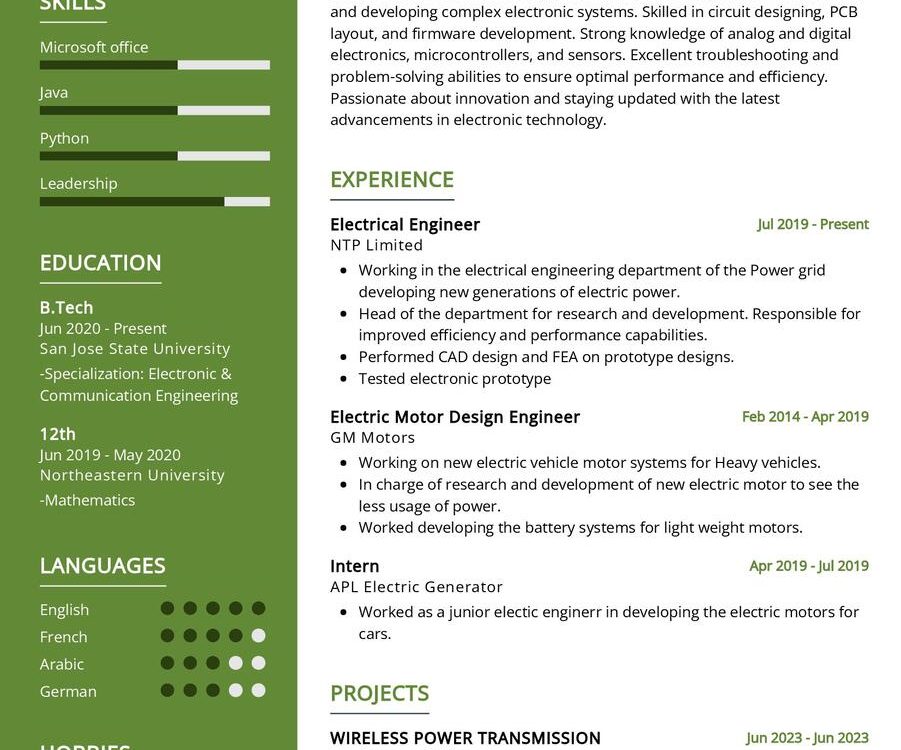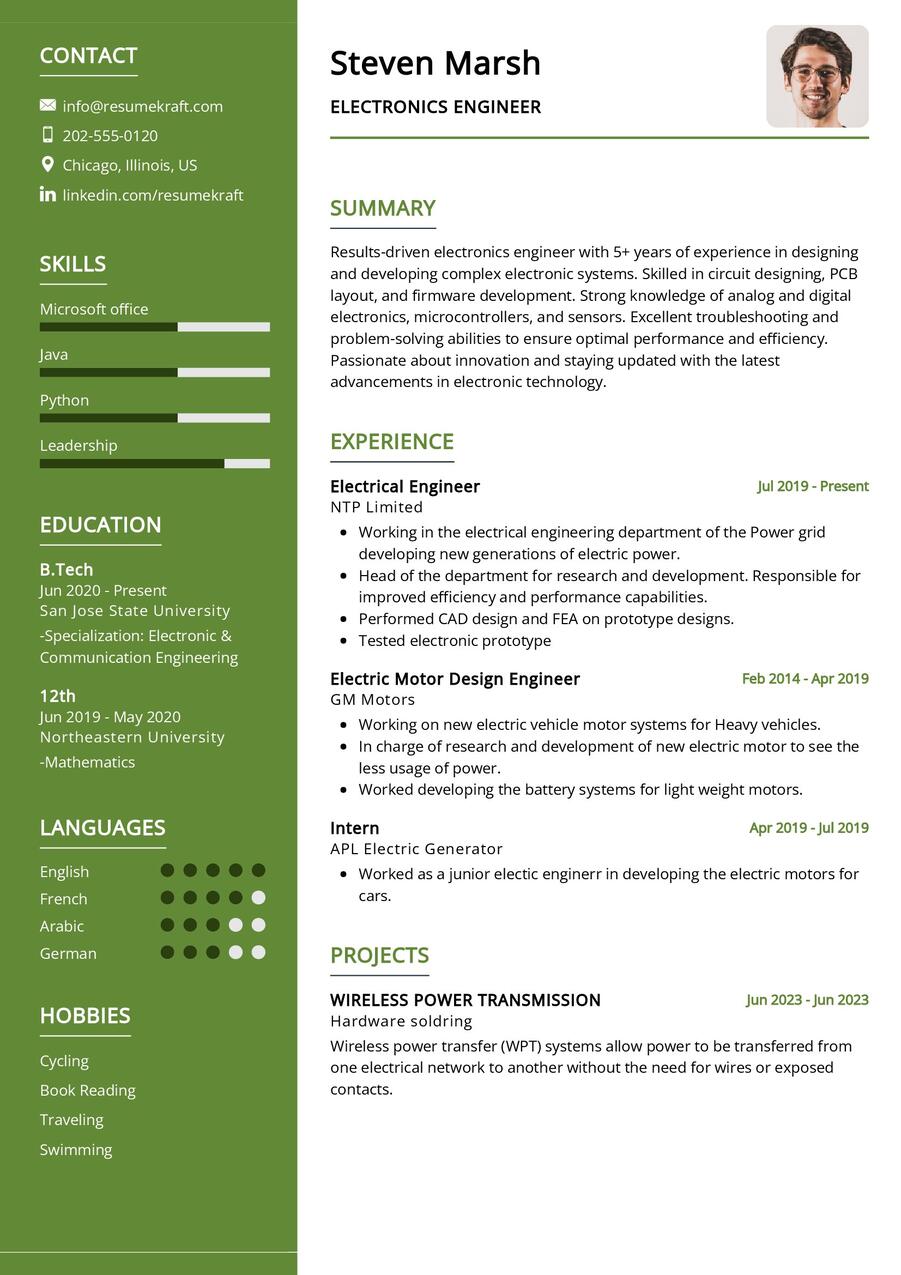Exploring the Role of an Electronics Engineer
As technology continues to advance, the role of an Electronics Engineer has become increasingly vital in shaping the modern world. This position requires a unique blend of technical expertise and innovative thinking to contribute to the development of electronic systems. Let’s delve deeper into the multifaceted role of an Electronics Engineer, a position that demands a deep understanding of electronics coupled with the ability to apply this knowledge effectively.
An Electronics Engineer is responsible for designing, developing, and testing electronic systems and components. They play a crucial role in various industries, from telecommunications to automotive, ensuring that electronic devices and systems function optimally. Beyond technical skills, Electronics Engineers also need to possess problem-solving abilities, attention to detail, and effective communication skills to collaborate with cross-functional teams.
Key Requirements for an Electronics Engineer
Becoming a successful Electronics Engineer involves meeting specific requirements and continuously updating skills in this rapidly evolving field. Let’s explore the key prerequisites that one needs to fulfill to excel as an Electronics Engineer:
- A Bachelor’s or Master’s degree in Electrical Engineering or a related field, showcasing a strong foundation in electronics and electrical systems.
- Proficient knowledge of circuit design, digital and analog electronics, and the ability to troubleshoot and debug electronic systems.
- Hands-on experience with industry-standard tools such as CAD software for circuit design and simulation.
- Programming skills in languages like C or Python, essential for designing embedded systems and firmware.
- Strong analytical and problem-solving skills to identify and address issues in electronic designs.
- Excellent communication skills to convey technical information effectively and collaborate with multidisciplinary teams.
- Adaptability and a willingness to stay updated on the latest advancements in electronics and related technologies.
Acquiring additional certifications, such as Certified Electronics Technician (CET) or Professional Engineer (PE) licensure, can enhance your profile in the competitive job market.
Responsibilities of an Electronics Engineer
The role of an Electronics Engineer is dynamic, encompassing various responsibilities that contribute to the successful development and implementation of electronic systems. Let’s unravel the core responsibilities that define this role:
- Designing and developing electronic circuits and systems based on project requirements.
- Conducting testing and troubleshooting to ensure the functionality and reliability of electronic components.
- Collaborating with cross-functional teams, including software engineers and project managers, to achieve project goals.
- Staying updated on industry trends and emerging technologies to integrate innovative solutions into electronic designs.
- Ensuring compliance with industry standards and regulations in the development and testing of electronic systems.
- Providing technical support and guidance to other team members and stakeholders.
Each responsibility comes with its own set of challenges and learning opportunities, contributing to the growth of the Electronics Engineer.
Electronics Engineer CV Writing Tips
Crafting a compelling CV is essential for showcasing your skills and experiences as an Electronics Engineer. Here are some tips to help you create a standout CV:
- Highlight your specific achievements in previous roles, showcasing instances where your contributions made a significant impact.
- Detail any projects you have led or participated in, emphasizing the technical challenges and solutions implemented.
- Quantify your achievements with measurable results, such as improved system efficiency or reduced development time.
- List relevant certifications and training programs, demonstrating your commitment to continuous learning in the field.
- Customize your CV for each application, tailoring it to match the specific requirements of the Electronics Engineer role.
Each tip is a step toward creating a CV that not only reflects your technical expertise but also presents you as a valuable asset to potential employers.
Electronics Engineer CV Summary Examples
Your CV summary serves as the opening statement of your professional story, providing a snapshot of your experiences and skills. Here are some examples to inspire you:
- “Experienced Electronics Engineer with a proven track record in designing and implementing innovative electronic solutions. Adept at collaborating with cross-functional teams and delivering projects on time and within budget.”
- “Detail-oriented Electronics Engineer with expertise in circuit design and testing. Led successful projects that resulted in a 15% improvement in system performance. Dedicated to staying updated on the latest advancements in electronic engineering.”
- “Electronics Engineer specializing in embedded systems and firmware development. Skilled in troubleshooting and providing effective solutions. Committed to continuous learning and adapting to the evolving landscape of electronic technologies.”
Each summary is an opportunity to showcase your unique strengths and set the tone for the rest of your CV.
Create a Strong Experience Section for Your Electronics Engineer CV
Your experience section is the heart of your CV, narrating the story of your career journey. Here are some examples to guide you in creating a robust experience section:
- “Led the design and development of a new electronic control system for an automotive client, resulting in a 20% improvement in fuel efficiency.”
- “Collaborated with software engineers to integrate advanced features into consumer electronics, contributing to a 30% increase in product sales.”
- “Provided technical support in troubleshooting and resolving issues in electronic systems, ensuring optimal performance and client satisfaction.”
Each experience is a chapter in your career story, highlighting your contributions and the impact you’ve made in previous roles.
Education Section for Your Electronics Engineer CV
Your educational background is a crucial part of your CV, demonstrating your foundation in electronics and engineering. Here’s how you can present your educational milestones:
- Master of Science in Electrical Engineering, XYZ University, a journey of in-depth learning and specialization, 2018.
- Bachelor of Science in Electronics Engineering, ABC University, the foundation of your career in electronic systems, 2014.
- Certified Electronics Technician (CET), demonstrating your practical skills and knowledge in the field, 2015.
Each educational qualification is a stepping stone, leading you to a successful career in electronics engineering.
Electronics Engineer Skills for Your CV
Your skill set is your toolkit, equipped with a diverse range of tools that you have honed over the years. It is a showcase of your abilities, both innate and acquired. Let’s list down the essential skills that an Electronics Engineer should possess:
Technical Skills:
- Circuit design and analysis, essential for creating effective electronic systems.
- Proficiency in CAD software, vital for schematic design and simulation.
- Programming skills in languages like C or Python for embedded systems and firmware development.
- Testing and troubleshooting electronic components and systems.
- Knowledge of industry standards and regulations in electronic design and testing.
Soft Skills:
- Effective communication, crucial for collaborating with cross-functional teams and conveying technical information.
- Problem-solving abilities, the knack of finding solutions to complex issues in electronic designs.
- Attention to detail, ensuring precision in electronic circuit design and implementation.
- Adaptability and willingness to stay updated on emerging technologies in electronics engineering.
Each skill is a tool, aiding you in creating exceptional electronic designs and leading teams effectively.
Common Mistakes to Avoid When Writing an Electronics Engineer CV
As you craft your CV, it is crucial to avoid common pitfalls that can hinder your chances of securing the desired role. Here are some mistakes often seen in CVs and how to avoid them:
- Avoid generic statements and focus on specific achievements and contributions in your previous roles.
- Quantify your accomplishments with measurable results to provide a clear picture of your impact.
- Include a cover letter to complement your CV and provide additional context for your application.
- Use clear and concise language, avoiding overly technical jargon that may be difficult for non-experts to understand.
- Proofread your CV thoroughly to ensure there are no grammatical errors or typos that could detract from your professionalism.
Each mistake is a potential obstacle, so steer clear to create a CV that stands out for all the right reasons.
Key Takeaways for Your Electronics Engineer CV
As we conclude this comprehensive guide, let’s recap the key points to keep in mind while crafting your Electronics Engineer CV:
- Emphasize specific achievements and projects in your experience section to showcase your impact.
- Showcase your technical proficiency, highlighting your expertise in electronics engineering.
- Detail any strategic initiatives you have led, demonstrating your ability to innovate in electronic design.
- Include a section on continuous learning, showcasing relevant certifications and training programs.
Finally, feel free to utilize resources like AI CV Builder, CV Design, CV Samples, CV Examples, CV Skills, CV Help, CV Synonyms, and Job Responsibilities to create a standout application and prepare for the Electronics Engineer job interview.
Armed with these insights and tips, you are now ready to craft a CV that is a true reflection of your journey, your skills, and your aspirations. Remember, your CV is not just a document; it is a canvas where you paint your career story, a story of growth, learning, and leadership. Best of luck!


